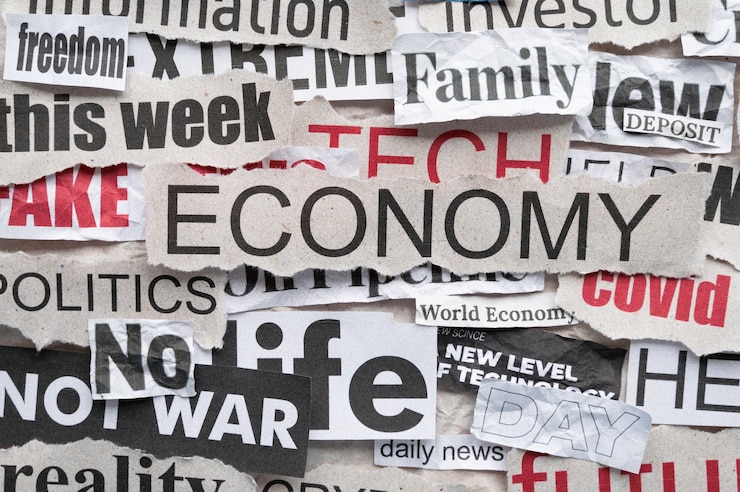India’s political landscape is always dynamic, with numerous developments unfolding daily. From key electoral battles to leadership shifts and national policy debates, the country is in the midst of exciting political changes. Here’s a look at the top political headlines making waves across India today.
1. Countdown to 2024 General Elections: BJP vs Opposition
The countdown to India’s 2024 General Elections has begun, with all political parties gearing up for what promises to be a fiercely contested battle. The Bharatiya Janata Party (BJP), led by Prime Minister Narendra Modi, is pushing forward with its agenda of development, national security, and welfare initiatives such as the Pradhan Mantri Awas Yojana and Ayushman Bharat to secure voter support.
On the other hand, the opposition parties, including the Indian National Congress (INC), Trinamool Congress (TMC), Aam Aadmi Party (AAP), and Samajwadi Party (SP), are working on forging alliances to present a united front against the BJP. However, differences in regional and ideological priorities are proving to be hurdles for the opposition’s unity. The 2024 elections will be a significant turning point for the nation’s political future.
2. Tensions in Jammu and Kashmir: Security Operations Continue
Jammu and Kashmir remains a volatile region as security forces carry out ongoing operations to counter insurgency and terrorism. Since the revocation of Article 370 in 2019, the region has seen an increased security presence and rising tensions between local political parties and the central government.
Leaders from regional parties such as the National Conference (NC) and Peoples Democratic Party (PDP) continue to protest against the removal of Jammu and Kashmir’s special status, arguing that it has eroded the region’s autonomy. Meanwhile, the BJP government defends its stance, emphasizing the region’s integration with the rest of India and its economic development. The future of Jammu and Kashmir remains uncertain, and political debates around its status are intensifying.
3. Congress Struggles with Internal Leadership Challenges
The Indian National Congress (INC) continues to grapple with internal power struggles, especially following the election of Mallikarjun Kharge as the new party president. Kharge’s leadership represents a shift away from the Gandhi family’s long-standing influence over the party. However, factionalism and infighting persist, undermining the party’s ability to mount a cohesive opposition against the ruling BJP.
While Rahul Gandhi and Priyanka Gandhi remain key figures, their influence over the party’s direction is being challenged by the rise of new leadership. As the 2024 General Elections approach, the Congress must address these internal conflicts if it hopes to be a serious contender in the national political arena.
4. KCR’s Efforts to Build a Federal Front
K. Chandrashekar Rao (KCR), the Chief Minister of Telangana, is making headlines for his push to form a federal front of regional parties aimed at challenging the dominance of the BJP in national politics. KCR is actively courting other regional parties, such as Mamata Banerjee’s TMC and Arvind Kejriwal’s AAP, to form a united opposition alliance for the 2024 elections.
However, there are concerns about the feasibility of such an alliance due to the differing political ideologies and regional ambitions of the parties involved. KCR’s push for a united front could either energize regional forces or create a fractured opposition that struggles to challenge the BJP’s national machinery.
5. Farmers’ Struggle: Agricultural Reforms Still a Hot Topic
The issue of farmers’ rights and agricultural reforms continues to be a major political flashpoint. The farm laws introduced by the government in 2020 led to widespread protests, particularly in Punjab and Haryana. Although the government repealed these laws in late 2021, farmers continue to demand more comprehensive reforms, such as guaranteed Minimum Support Prices (MSP) and better support for small farmers.
Political parties representing agrarian interests are seeking to pressurize the government to introduce more farmer-friendly policies. Meanwhile, the BJP has focused on promoting agricultural exports and other welfare initiatives, but the government’s handling of the agrarian crisis remains a key issue for many voters, particularly in rural India.
6. Regional Parties Strengthen Their Influence
Regional political parties are playing an increasingly significant role in shaping India’s political landscape. Leaders like Mamata Banerjee of TMC, Arvind Kejriwal of AAP, and Nitish Kumar of JD(U) are gaining influence in their respective states, and their power is now starting to impact national politics.
In Bihar, Nitish Kumar’s re-alignment with Rashtriya Janata Dal (RJD) has shaken up the state’s political equilibrium and signals a potential shift in the power dynamics in the lead-up to 2024. Similarly, Mamata Banerjee has established her dominance in West Bengal after defeating the BJP in the 2021 state elections. As regional parties gain momentum, the BJP faces new challenges in both national and state-level politics.
7. Adani Controversy: Political and Legal Fallout
The Adani Group remains at the center of a major controversy after allegations of stock manipulation and corporate irregularities were made by a global research firm. The controversy has triggered political debates, with opposition leaders accusing the BJP of shielding corporate interests and not taking appropriate action against the group.
The Opposition is demanding investigations into the alleged financial wrongdoings, while the BJP continues to defend its stance, emphasizing the group’s role in India’s economic development. The ongoing controversy around Adani’s business practices is one of the most hotly debated political issues, adding further complexity to India’s political environment as the country heads toward the 2024 elections.
8. Supreme Court’s Impact on Political Accountability
The Supreme Court of India continues to be a key player in shaping the country’s political discourse. Recent decisions by the court have focused on ensuring greater transparency in political funding, addressing corruption, and upholding democratic processes.
The court’s rulings on issues such as anti-defection laws, electoral bonds, and electoral reforms are influencing how political parties operate in the run-up to the elections. With calls for greater accountability in political practices, the role of the judiciary in maintaining the integrity of India’s democracy remains crucial.
Conclusion
India’s political scene is in a state of flux, with multiple forces shaping the landscape ahead of the 2024 General Elections. From the shifting dynamics between national and regional parties to the ongoing debates over economic policies, leadership struggles, and major legal developments, the current political headlines in India reveal a highly charged and evolving atmosphere. As the country moves closer to the elections, these political developments will play a significant role in determining the future of Indian democracy.







